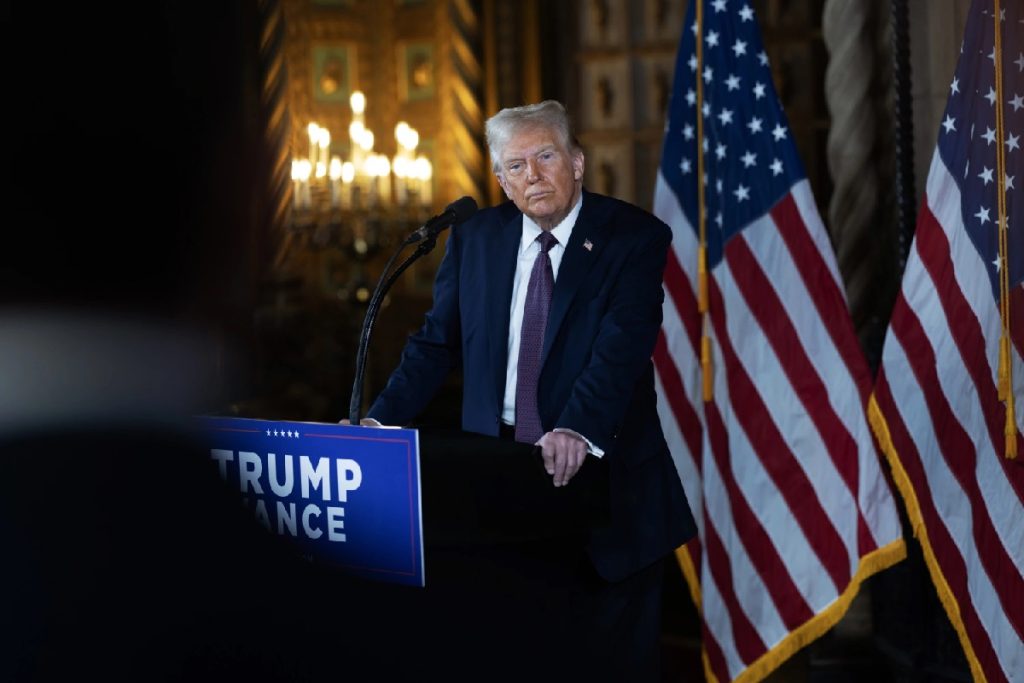Trump’s Response to ICC Warrants Against Netanyahu: A Game-Changer for U.S.-Israel Relations
Trump's administration takes a bold stance against the ICC, intensifying support for Israel while raising questions about accountability and international law.

Watan-After U.S. threats to challenge and pursue the International Criminal Court (ICC) following the arrest warrants issued in November against Israeli Prime Minister Benjamin Netanyahu and former Defense Minister Yoav Gallant, questions now arise about the fate of these actions after Donald Trump officially assumed office on January 20. Trump has made no secret of his unwavering support for Israel and its prime minister.
“Expect a strong response in January,” said Mike Waltz, National Security Advisor to President Donald Trump, in response to the ICC’s decision to issue warrants against Netanyahu and Gallant. He accused the court of lacking credibility and being antisemitic, claiming it was targeting “Israel, which defends its people.”
The Fate of the Court Ruling
Dr. Hassan Lafi, a political analyst specializing in Israeli affairs, told Masrawy that he does not believe the U.S.’s generous support for Israeli policies and officials will change significantly. He noted that former President Joe Biden had a strong and unwavering stance in support of Israel and Netanyahu, and Trump is likely to amplify that stance even further.
Lafi added that the U.S. administration will likely make statements about preparing a peace plan for the region, aiming to undermine the ICC’s decision and harm international efforts to establish peace in the Middle East.
Regarding Trump’s policies, Lafi described him as being more aggressive and overt than his predecessor Joe Biden, who, as a Democrat, upheld international law and similar principles. Trump, on the other hand, is a businessman with personal conflicts with the judiciary and the law, which makes him averse to such institutions.
Lafi suggested that the Trump administration would take harsher measures against the ICC, possibly imposing sanctions on the court and even personally targeting its officials.

Impact on Gaza and the Case
Lafi argued that the ceasefire in Gaza will not negatively affect the ICC case; rather, it will strengthen it. The pause in hostilities provides a real opportunity to gather evidence against Israel, Netanyahu, Gallant, and other Israeli leaders involved in the war. He emphasized the importance of international bodies quickly collecting evidence and entering Gaza before Israel has the chance to hide it.
He noted that the ceasefire allows Gaza residents freedom of movement, enabling them to represent themselves in court and testify against Netanyahu and Gallant, which could further complicate the situation for Israel.
U.S. Position on the ICC
Dr. Basem Al-Qasem, another analyst on Israeli affairs, told Masrawy that the United States is not a signatory to the Rome Statute, meaning it is not bound by the ICC. This allows the U.S. greater flexibility in dealing with the court and imposing pressure or sanctions on it.
When asked about potential measures, the ICC spokesperson Fadi Al-Abdallah stated that he could not comment at this time, adding that any actions or responses would be announced in an official statement.
Experts suggest that sanctions targeting ICC officials could pose a significant challenge for the court, though they remain manageable for the United States. Institutional-level sanctions could severely impact the ICC, restricting its access to essential services such as banking, payment systems, IT infrastructure, and insurance, potentially threatening the court’s operations.
The ICC’s reliance on external technology providers, particularly for IT infrastructure, has also raised concerns about its vulnerability to such sanctions. The deepening dependency on technology partnerships under current leadership has made the court’s operations more susceptible to external pressures, including the potential impact of U.S. sanctions.
Dr. Ali Al-Qasem explained that the U.S. has political, financial, and diplomatic tools to pressure countries aligned with its orbit, including cutting financial aid to dependent nations. He warned that the Trump administration might resort to trade or tariff restrictions and even military tools, such as limiting the U.S.’s military, economic, or legal support, particularly for European countries heavily reliant on such backing.

European Alignment
Al-Qasem noted that some countries, such as Germany and Italy, might not require much U.S. pressure due to their right-wing governments’ alignment with Netanyahu’s policies, especially on Palestine.
He added that countries outside the U.S. sphere of influence are more likely to comply with ICC rulings, given their independence and clear stance on the war in Gaza. However, he acknowledged that Rome Statute member states are obligated to enforce the ICC’s decisions, including arresting Netanyahu and Gallant. Still, political and diplomatic considerations, such as guarantees from Germany and Italy not to detain Netanyahu during visits, could influence enforcement.






